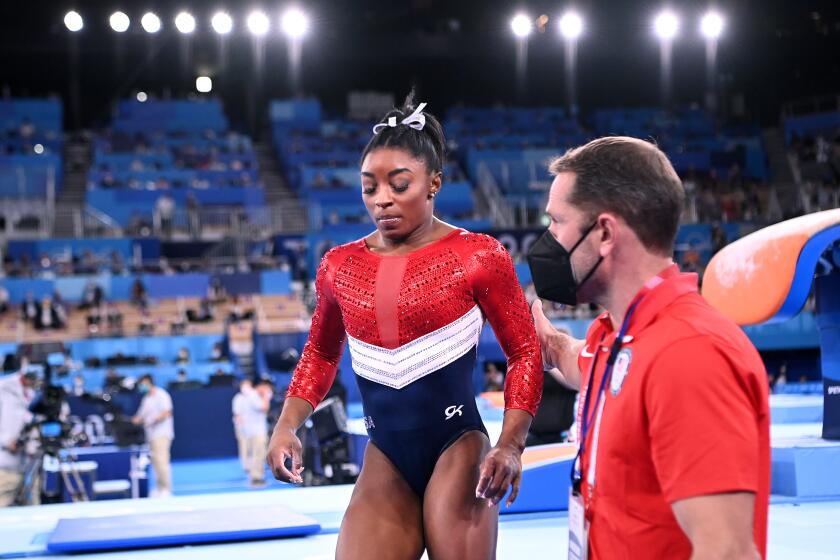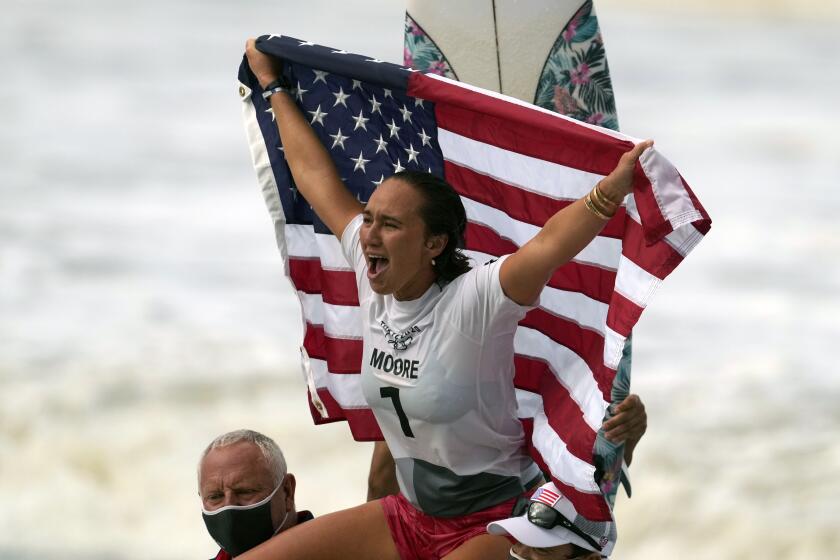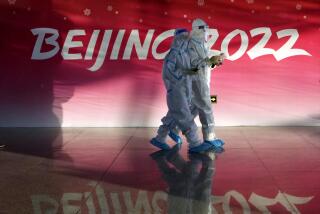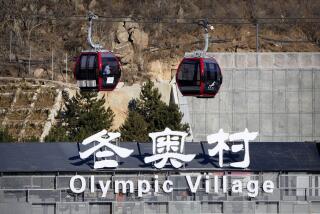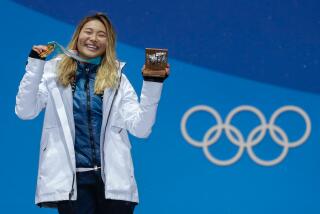To vaccinate or not? For U.S. Olympic athletes, the debate creates division
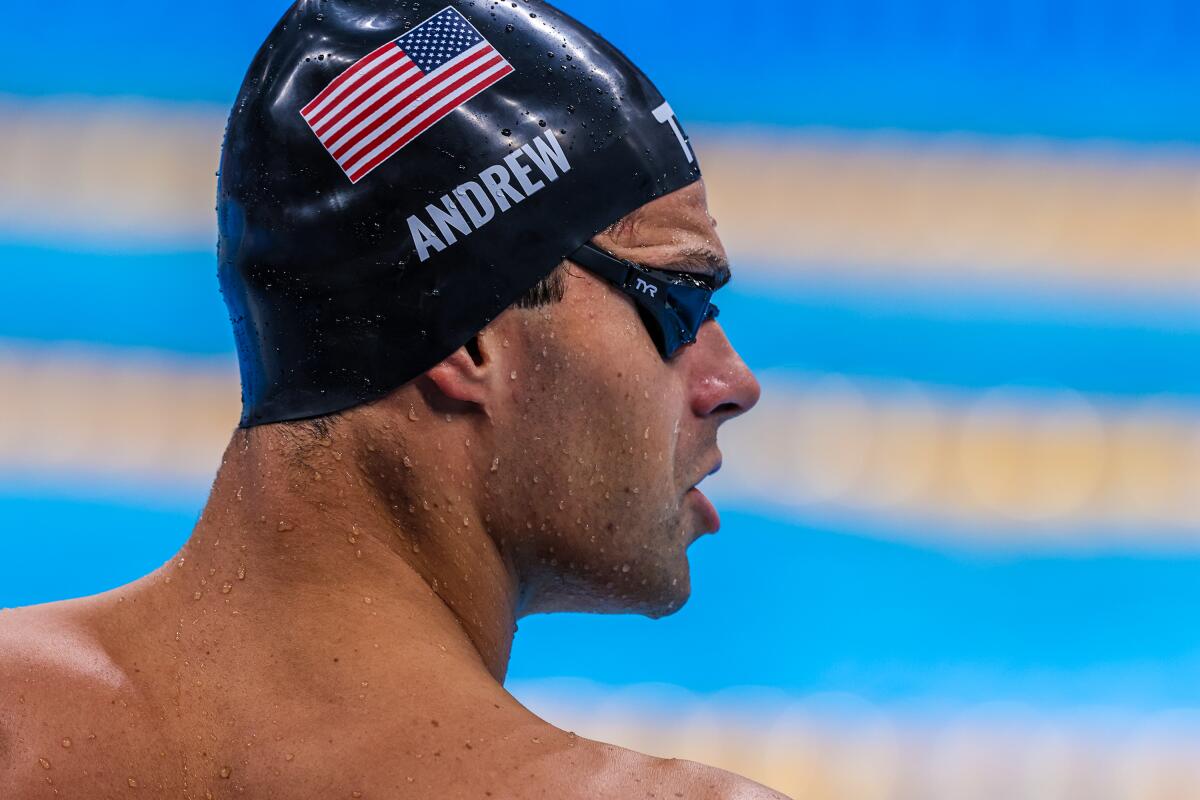
TOKYO — Earlier this month, up-and-coming American swimmer Michael Andrew revealed that he had chosen not to get a COVID-19 vaccination before traveling to Japan for the Summer Olympics.
The news drew a lengthy rebuke on social media from another prominent figure in the sport, retired two-time Olympic gold medalist Maya DiRado.
“That Michael would make a decision that puts even a bit of risk on his teammates for his own perceived well-being frustrates me,” she wrote.
In a sport that usually avoids making waves outside the pool, the blunt comments triggered equally testy pushback from some of Andrew’s teammates.
The Games are supposed to bring people together, but they haven’t been able to escape the contentious vaccine debate that’s raging thousands of miles away in the U.S.
Losses and missteps by Simone Biles, Naomi Osaka, Katie Ledecky and U.S. women’s soccer and men’s basketball teams have these Olympic Games in trouble.
While big-name competitors such as gymnast Simone Biles and swimmer Katie Ledecky have publicly acknowledged being vaccinated, Andrew is the highest-profile U.S. athlete to speak against it. The 22-year-old from Encinitas said he had COVID-19 in December and recovered “very easily.”
“I didn’t want to put anything in my body I didn’t know how I would potentially react to,” Andrew said during a recent news conference. “As an athlete on the elite level, everything you do is very calculated. For me in the training cycle ... I didn’t want to risk any days out.”
He went further in a recent interview with the Fox Business Network, saying he’s “representing my country in multiple ways and the freedoms we have to make a decision” and that not taking the vaccine is “something I’m willing to stand for.”
More than 85% of 709 athletes and alternates on the U.S. roster indicated they had been vaccinated, according to pre-Games medical questionnaires filed with the U.S. Olympic and Paralympic Committee. (No information was collected on staffers.)
That number compares favorably to the 60% rate for adults in the U.S., but means more than 100 athletes are unvaccinated while eating, sleeping and training in close proximity with teammates.
In the year before the postponed Olympics, several members of the U.S. women’s rugby team missed playing time because they were ill with COVID-19. The squad “had a lot of discussions about whether we were going to get the vaccine or not,” said winger Naya Tapper.
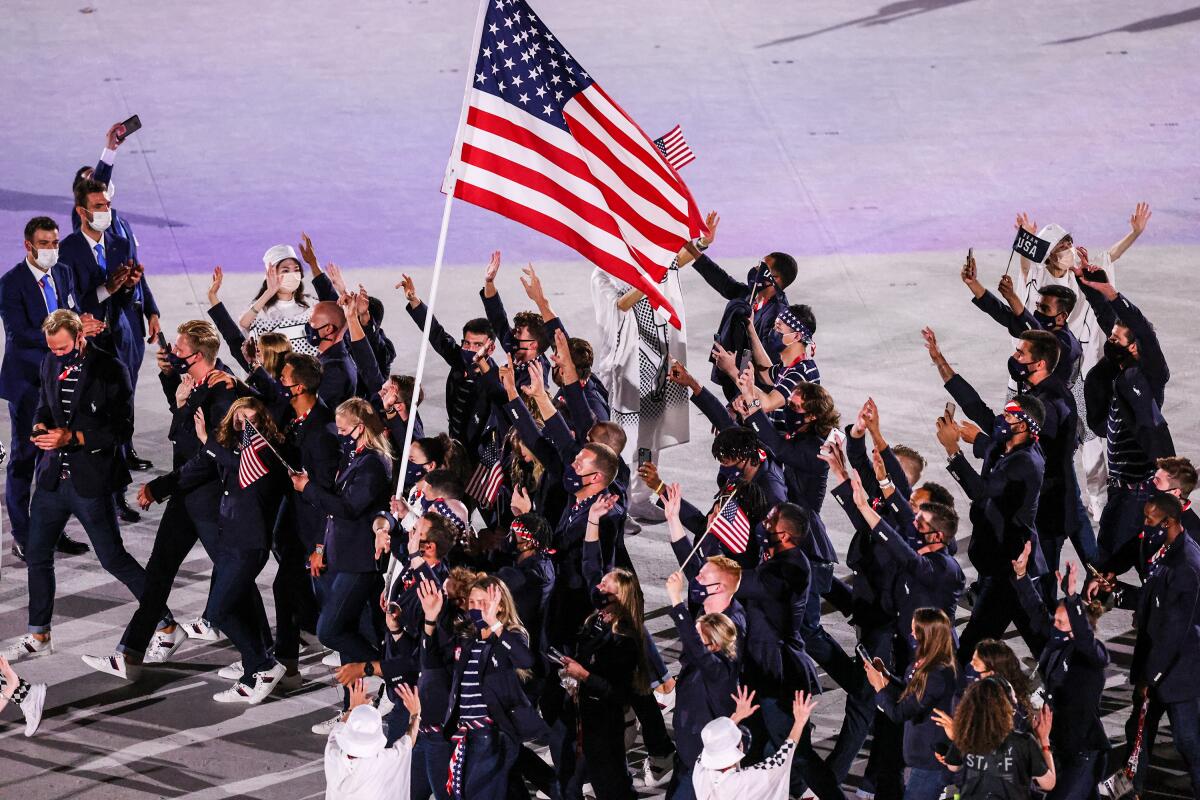
There were also mixed emotions on the men’s squad where, like a lot of young, healthy athletes, Perry Baker said he “definitely had doubts about getting the shot. I felt like I could deal with [the coronavirus] if it came.”
The issue was complicated by the fact that many Americans had to qualify for the team at Olympic trials throughout the spring and did not want to miss any training because of adverse reactions. Tom Scott, on the national karate roster, did not make up his mind until taking a COVID-19 test before an international competition.
“You cannot compete unless you have a negative test,” Scott said. “So you’re kind of sitting there just hoping that after the travel and stuff that you’ve done OK.”
As chairwoman of the USOPC, Susanne Lyons has found herself balancing freedom of choice with “the weight of ensuring that we are, first of all, not endangering our host nation and certainly not endangering our athletes.”
New infections have surged in Japan, where only 30% of the population is vaccinated. Public opinion in Japan has trended against inviting 40,000 foreigners to a country that has otherwise closed its borders.
The issue has created a collision between personal choice and collective responsibility among athletes that mirrors discussions in the U.S.
“On one hand, the decisions one makes about one’s health are at the core of one’s autonomy,” said Shawn Klein, who teaches philosophy at Arizona State and specializes in sports ethics. “These decisions involve one’s deepest values and concerns. A free society must not interfere with such decisions lightly. On the other hand, the decision not to get the COVID-19 vaccine might impact others in potentially serious ways. The balancing of these is always controversial.”
The International Olympic Committee has estimated that 80% of residents in the athletes village will be vaccinated but is treating everyone at these Games — athletes, journalists, officials — as if they are not. The IOC and local organizers believe they can keep all participants safe through strict rules.
Precautions are everywhere. Foreign spectators were banned long ago. Domestic fans aren’t allowed inside venues, either. Plastic dividers on tables in the Olympic Village dining hall separate each person. Athletes are tested daily. Masks are mandatory; calls to a hotline report people who aren’t wearing them. There are regular temperature checks. Olympic credential-holders aren’t allowed to mingle with the general population during their first two weeks in country. Public address announcements at events remind coaches to socially distance and disinfect their hands. Teams leave the country after they’re done competing. Even microphones at news conferences are disinfected between speakers.
Some say the measures may seem antiquated in the fast-changing world of COVID-19 science, but organizers are using a kitchen-sink approach to keep the Games moving forward.
“All these things together is our best chance,” said Dr. Naresh Rao, the head physician for the U.S. men’s water polo team.
Said Zachary Binney, an assistant professor and epidemiologist at Emory University: “The most important things that they’re doing are the daily testing and mask wearing, especially indoors in groups. This will identify cases quickly when they do occur, hopefully preventing outbreaks, and make it harder for the disease to spread.”
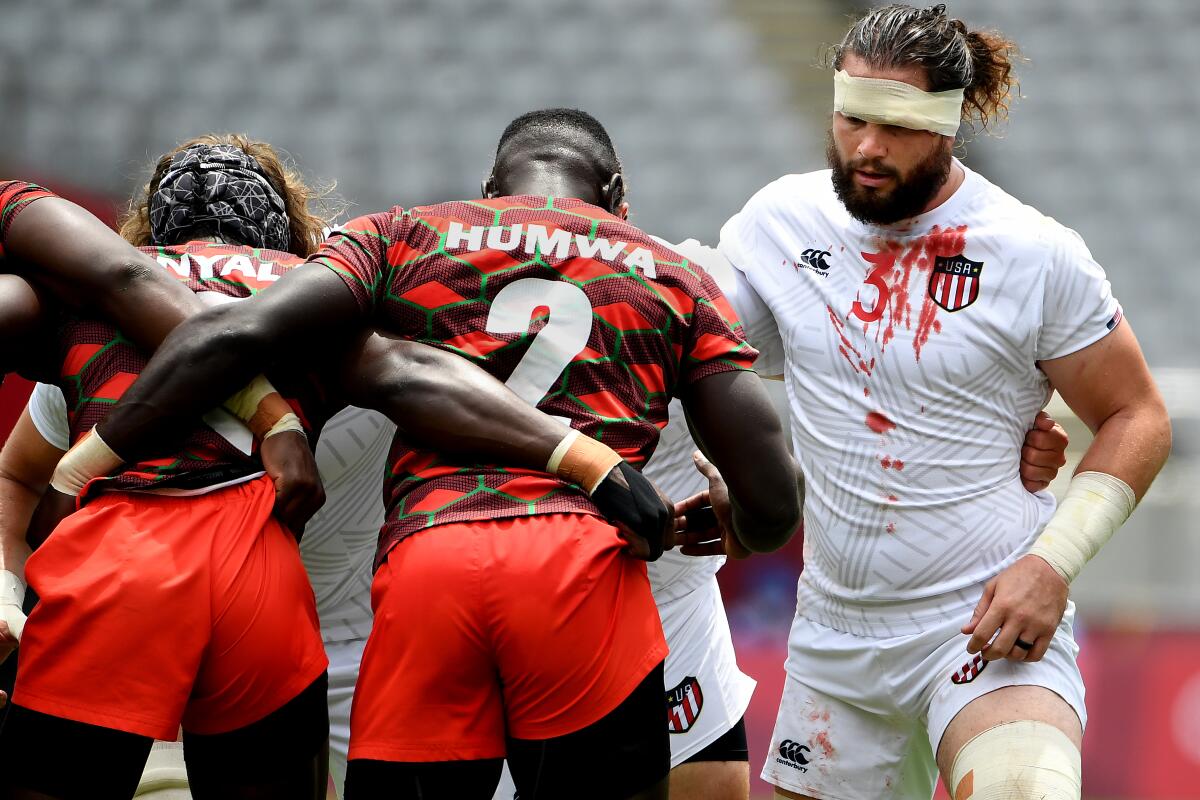
Despite the measures, 21 athletes have tested positive in Japan since July 15, along with several people connected to the village that’s supposed to be a bubble within a bubble. It’s unclear how many of the athletes had been vaccinated.
DiRado’s social media comments about Andrew pushed the issue into the forefront of conversation about the Games, alongside world records and medal counts.
“First, I wish he’d think harder about what he’s proud to represent,” DiRado wrote. “Team USA loves to say that we represent the best country in the world. There are a number of plausible reasons one could give for that, and freedom to not get vaccinated seems to be high for him. Ok. But what about the fact that American scientists helped bring the best vaccines to market fastest? And the fact that while much of the world desperately wants vaccines, the US has made them freely available to any citizen who wants one?”
U.S. swimmer Patrick Callan responded by posting: “Michael is allowed to make his own decisions and I can guarantee you that none of us here are holding any decision like that against him.”
Carissa Moore became the first woman to win a gold medal in surfing at the Olympics, defeating South Africa’s Bianca Buitendag.
Andrew’s father, Peter, is an assistant for the U.S. team. In an email, he dismissed DiRado’s comments as “People trying to impose their political views” and said, “Try not to take notice of it as how blessed are we to still be living in a country where we have freedom of choice.”
Michael Andrew, living in the village with the rest of the team, is scheduled to swim two more individual events at the Tokyo Aquatics Centre this week after finishing fourth in the 100-meter breaststroke. He said “everything is really safe” and he’s following all protocols. And the vaccine issue?
“I’ve been doing my best to switch off the haters,” he said. “But there are a lot of people with me. I’m here to swim fast and that’s the focus.”
More to Read
Go beyond the scoreboard
Get the latest on L.A.'s teams in the daily Sports Report newsletter.
You may occasionally receive promotional content from the Los Angeles Times.
